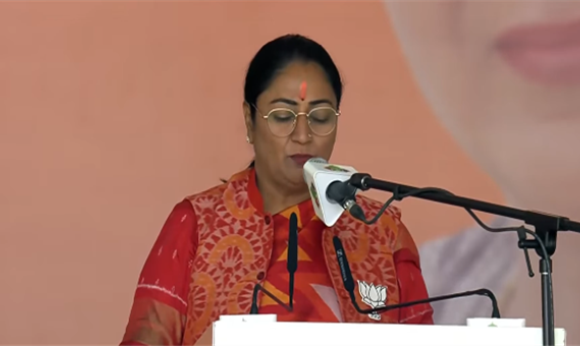All five accused in Soumya Vishwanthan case found guilty by Saket court
NEW DELHI,OCTO 18 : More than 15 years after television journalist Soumya Vishwanathan was shot dead by unknown assailants in Vasant Kunj in South Delhi, a South Delhi court has pronounced four of the accused guilty of murder. A fifth has been found guilty of possessing a stolen car. Their sentences are likely to be pronounced next week.
Additional Sessions Judge Ravindra Kumar Pandey held four accused — Ravi Kapoor, Amit Shukla, Baljeet Malik and Ajay Kumar — guilty of murdering the journalist as she was on her way back home early in the morning of on Sep 30, 2008 after a night shift at Headlines Today, a television news channel.
The fifth accused, Ajay Sethi, has been found guilty of possessing stolen property (car).
Two of the accused, Kapoor and Shukla, were awarded death sentences in 2016 in connection with the murder of another girl, Jigisha Ghosh, in Vasant Vihar, not far from where Soumya was killed. The sentence was later reduced to life imprisonment on appeal.
It is almost certain that the prosecution in this case will seek the death penalty.
Puzzled by the lack of evidence and clues, Delhi Police had invoked the stringent Maharashtra Control of Organised Crime Act (MCOCA) in the case.
It was only after the recovery of the weapon used in IT executive Jigisha Ghosh’s killing in 2009 that the police were able to make some headway in the Soumya case as well.
Soumyas parents continue to live in Delhi and have been fighting for justice for their younger daughter.
The hearing in the Saket court has lasted for more than a decade, making it one of the longest such trials, leading to questions from the High Court.
The trial court had informed the high court that the delay was primarily due to the non-presence of prosecution witnesses and the time taken for the appointment of a special public prosecutor.
The court is likely to pronounce its sentence on Thursday, Oct 26.
Cases such as those of Soumya and Jigisha — an IT employee — led to the perception of Delhi being unsafe for women, and to rules that curtailed the professional freedom of women in the city, such as women not being allowed to work at night.
-The New Indian Express







